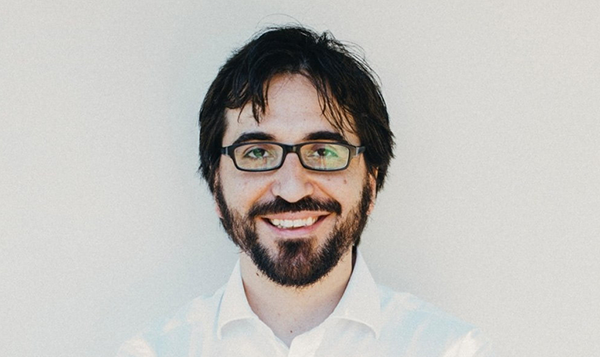A sense of community among mental health professionals is essential

Responding to COVID-19: Interview Series
MHE aims to provide helpful information to as many people as possible on how communities, including experts by experience, service providers, mental health leaders, governments and policy makers, researchers and others, can support people efficiently through the current crisis and beyond.
In this interview series with MHE members and partners, we discuss the impact of the pandemic on their lives and work and which measures they are taking or can be taken to cope with the situation. These testimonies underline the importance of putting mental health higher on the European agenda, during the crisis and afterwards, while offering a personal side and shared expertise for people within the mental health sector, decision makers, and anyone interested in improving mental health for all.
Interview with Simone Cheli, president at Tages Onlus, Italy
What impact is the current situation having on your organisation?
On the one hand, the clinical intervention saw a significant change. We were not totally prepared to deal with this crisis, neither were our patients. On the other hand, we have become more involved in social initiatives and projects, aimed at supporting a strategy for dealing with COVID-19. I would say the impact is mainly on the clinical intervention.
The crisis has also reduced the income of our organisation. At the same time, we’ve had an increase in requests for our free-of-charge services. So there is a paradox between the reduction of financial resources and increased demand in clinical and research activities.
How are you adjusting your services?
We have significantly changed everything. In a recent webinar organised by the Lancet about mental health and the impact of COVID-19, Emily Holmes said that in just ten days we have adapted to the change in transforming in vivo mental health intervention which we had not been able to do for ten years. We have moved all interventions online, both the clinical one and the training and research activities. We have maintained a few emergency interventions because we work with people who are affected by psychoses, schizophrenia and highly complex post-traumatic disorders. Therefore, we have maintained the possibility to have in-person consultations. These are regulated by strict rules: wearing masks and keeping 2 metres of distance at all times among other things. Besides, only a limited number of people are allowed to enter our facilities.
How are you arranging things in order to safeguard your employees’ physical and mental health?
We have moved everything online, and only a few colleagues are allowed to use the clinical centre. We had to stop interventions for children and for the elderly with neurological diseases. I can say to a client not to pass the 2 metres boundary, but I cannot ask the same of a patient who has Alzheimer’s disease.
What is helping your organisation?
Two strategies. First, we have started weekly online meetings with all the professionals from our two centres in Florence and Bologna. Our aim was to create a sense of community and support. Especially during the first 3-4 weeks after the pandemic broke out, the online meetings were meant to support the staff.
The second strategy is about trying to reframe all services, not in the short-term but in the long-term. We are creating a new online training platform. Besides, we have come up with a new strategy assessing mental health delivery services for the different working groups of our association. We have also re-organised in different areas and joined a few international projects. We are the Italian coordinators of a study from the University of Coimbra, Portugal on the impact of COVID-19 on wellbeing in 18 countries. Additionally, we are the promoter of a study on the psychological impact of COVID-19 on cancer patients and survivors in 13 nations.
What would further help your organisation? What actions by national government and EU are needed to help your organisation?
We need a European mental health strategy. That is what is lacking now. Single regions in countries like Italy or the US are moving independently from the central government, creating a lot of chaos. You can see the high rate of infections in these countries as a result. It is crazy to see this pattern in contrast to Germany or France, where there is a central direction. This centralised approach lacks from a European level. I am not talking about money; I am talking about a common strategy, which seems the main problem to me. Then for sure, there is an international problem: how to support the creation of groups, charities, academic institutions and how to get us to work together.
What message of hope could you send to other professionals that might be facing problems similar to those of your organisation?
I would say that the digital barrier is not a big problem. Both the mental health staff and clients receive significant support from Telehealth. So, it is not a question of additional barriers. It is required to find effective ways to support people, and so we need to outline and apply evidence-based interventions.
At the same time, as a mental health organisation, we cannot forget one of the basic principles in our profession – you cannot take care of someone else without taking care of yourself. What works for the client works for the mental health professional. We are in online communities, join national projects, local projects – they are important not simply in collecting evidence but also in maintaining a sense of community among mental health professionals. It can feel very lonely sometimes.
Find out about the work of Tages Onlus HERE
Stay connected
Get our latest news, personal stories, research articles, and job opportunities.